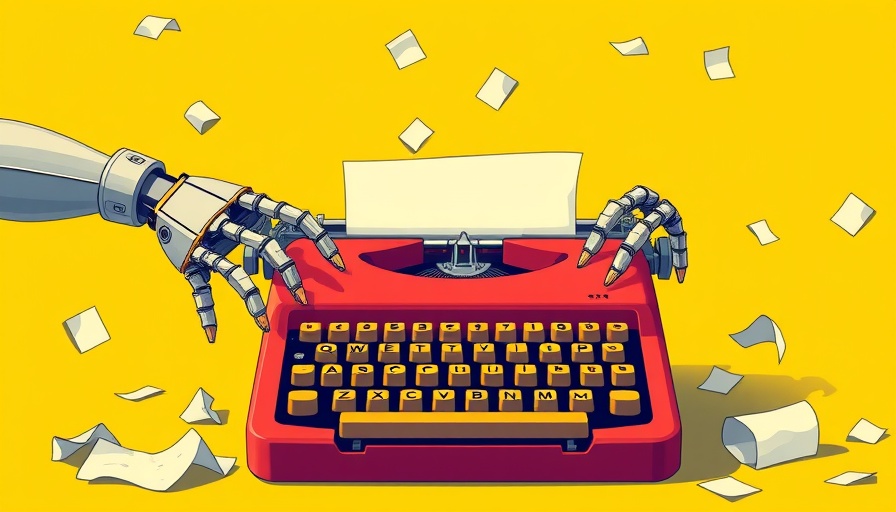
OpenAI’s Models: A Controversy on Copyrighted Content
A recent study asserts that OpenAI's models, which underlie their AI technologies, have memorized copyrighted content, raising significant concerns among creators and legal experts. The allegations stem from several lawsuits filed against OpenAI by authors and programmers who claim their works—ranging from books to code—were used without permission in training AI models like GPT-4 and GPT-3.5. This has prompted serious discussions about copyright law and the practices surrounding training AI systems.
Understanding the Study and Its Methodology
The investigation conducted by researchers from prominent institutions, including the University of Washington, used a novel approach to identify when AI models 'memorize' specific copyrighted text. The researchers focused on what they termed “high-surprisal” words—those that are statistically less common and hence more indicative of memorization within the training data.
This method was employed by the researchers to assess various responses generated by OpenAI's language models. For example, in a test scenario, certain excerpts from popular fiction were encrypted by removing high-surprisal words. The models were then asked to deduce the missing terms. When successful, this indicated a recollection of the original training material, thereby suggesting the model had memorized specific text.
The Findings: What Did They Discover?
Results revealed that GPT-4 showed signs of reciting portions of copyrighted fiction, particularly works included in a dataset named BookMIA. Interestingly, while the model also demonstrated some memorization of New York Times articles, the rate was considerably lower in comparison to fictional works. Such findings spotlight a troubling implication—AI models could be inadvertently copying creative content, which could compromise the integrity of original authorship.
The Implications for Copyright Law and AI Development
OpenAI's defense rests on the concept of 'fair use,' a doctrine that allows limited use of copyrighted material without needing permission. However, there is an ongoing debate on whether this holds for AI training datasets, as plaintiffs argue that no explicit allowance exists within current U.S. copyright law.
Abhilasha Ravichander, one of the study's co-authors, emphasized the necessity for transparency in AI development to establish more trustworthy models. This view aligns with calls for clearer legal frameworks and ethical guidelines governing the use of copyrighted content in AI training. As AI technologies become more ingrained in various sectors, understanding their limitations and ethical considerations is paramount.
Exploring the Broader Impact of AI on Creative Fields
The rise of AI has resulted in concerns regarding the future of creative industries. Authors, designers, and other creators are rightfully worried that AI’s ability to generate content could hinder their own creative efforts, leading to diminished economic opportunities. Copyright infringement violations could create an environment where originality is undervalued and creators receive inadequate compensation for their works.
Furthermore, as OpenAI and other companies advocate for looser restrictions on utilizing copyrighted material for training AI, the resulting dialogue is crucial for shaping the future landscape of AI interactions with creativity.
What’s Next: The Call for Data Transparency
The conversation surrounding AI and copyright has only just begun. As AI continues to evolve, practitioners and stakeholders alike must engage in discussions about ethical implications, responsible sourcing of training data, and the need for regulatory reforms. Ongoing research, such as that spearheaded by Ravichander and her team, will serve as key tools in advancing the debate on maintaining the sanctity of creative works.
The demand for AI systems that provide more data transparency is ever-increasing. Stakeholders are seeking assurance that AI can serve as a collaborative tool rather than a replacement for human creativity. As technology advances, it is vital to remain vigilant against the pitfalls associated with unregulated AI training methodologies.
The Path Forward: Engaging with AI Ethically
For those engrossed in the realms of technology, law, and creativity, understanding the implications of AI on copyrighted works is integral for navigating the complexities of the modern digital landscape. As discussions around copyright laws and fair use evolve, maintaining an open dialogue about these relevant issues will help bridge the gap between innovation and ethical practices in AI development. The intersection of creativity and artificial intelligence poses a valuable opportunity to explore how technology can enhance, rather than redefine, artistic expression.
 Add Row
Add Row  Add
Add 




Write A Comment